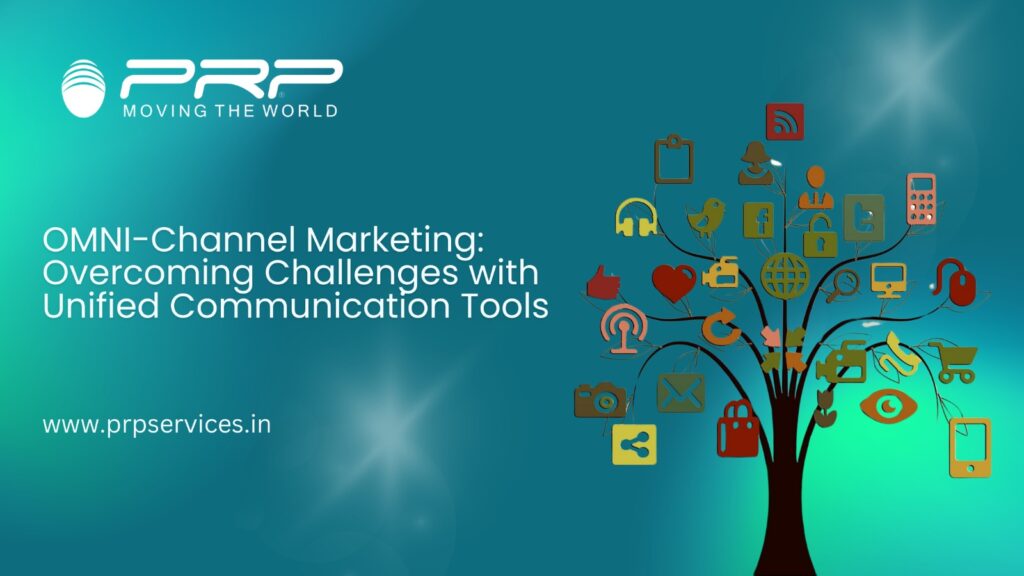In today’s digital world, customers engage with brands across various platforms—social media, websites, physical stores, and mobile apps. Business owners wishing to deliver a seamless and integrated customer experience across all these touchpoints need OMNI-channel marketing. It’s no longer sufficient to simply be present on multiple channels; the real challenge is creating a unified customer journey that feels consistent and connected, regardless of where the interaction starts or ends.
OMNI-channel marketing focuses on delivering a cohesive brand experience at every interaction point, ensuring customers can transition smoothly from one channel to another. Whether they begin their journey on a mobile device, continue on a desktop, and complete it in-store, the experience should be unified and effortless. However, implementing such a strategy comes with significant challenges.
Key Challenges in OMNI-Channel Marketing
Despite its potential, implementing an effective OMNI-channel strategy comes with significant challenges:
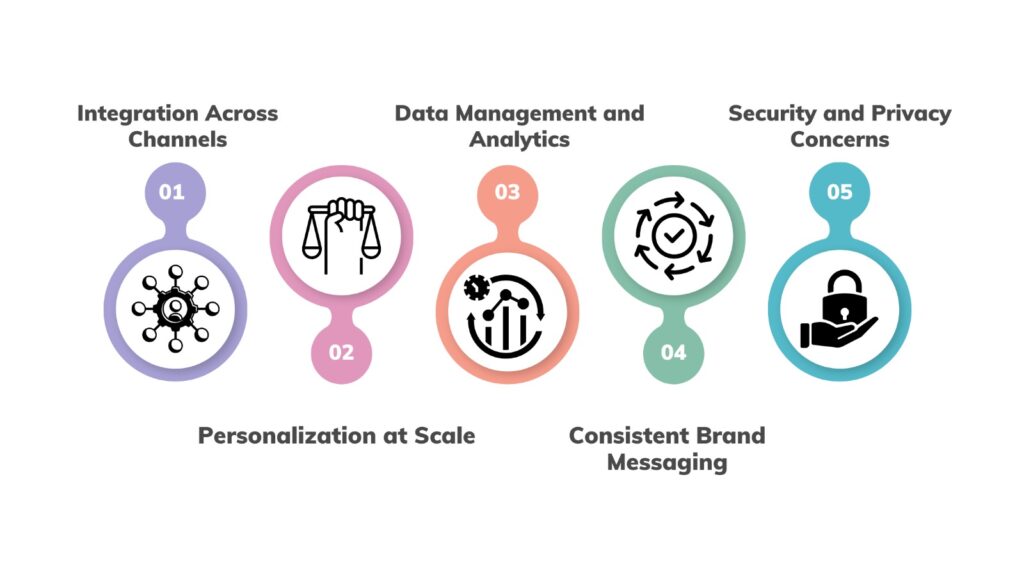
- Integration Across Channels: Managing multiple platforms and ensuring they work together weakly is a significant hurdle. A lack of integration can lead to inconsistent customer experiences and brand messaging. For instance, a customer might encounter conflicting information when engaging with your brand via email versus in-store, causing confusion and dissatisfaction.
- Data Management and Analytics: Data from various channels can be overwhelming to manage. The challenge lies in effectively analyzing this data to extract valuable insights about customer behavior. A retail company, for example, might struggle to merge data from its online store, mobile app, and physical outlets, making it difficult to understand customer preferences and optimize marketing strategies.
- Personalization at Scale: Personalized experiences are expected by customers in the modern era. Delivering such experiences consistently across all channels is complex and resource-intensive. Consider an e-commerce platform that wants to recommend products based on a customer’s browsing history across devices. Without advanced data analytics and seamless integration, achieving this level of personalization is challenging.
- Consistent Brand Messaging: Trust and recognition can be built by maintaining brand consistency across all channels. However, this consistency is hard to achieve when different teams manage different platforms. A financial service provider might struggle to maintain a uniform message across its website, social media, and customer service, potentially leading to mixed messages and eroded customer trust.
- Security and Privacy Concerns: With customer data being collected across various platforms, ensuring its security and complying with privacy regulations is increasingly challenging. A healthcare provider, for example, must secure patient data across its mobile app, website, and physical records. The consequences of any breach could be severe, both legally and reputationally.
Benefits and Features of a Unified Communication Tool
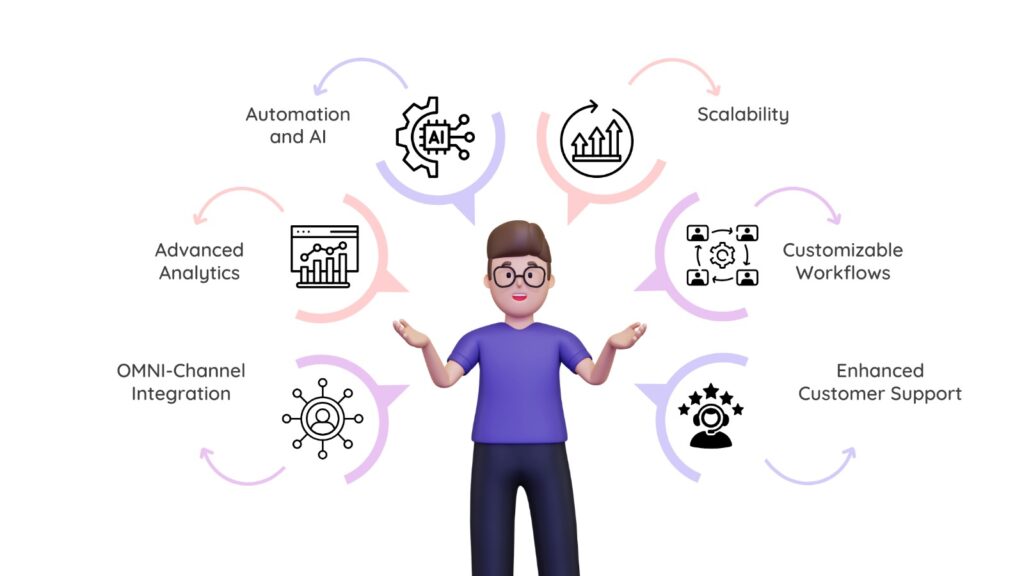
- OMNI-Channel Integration: Manage all customer interactions from a single dashboard, ensuring a seamless experience across channels.
- Advanced Analytics: Gain deep insights into customer behavior with real-time data analysis and reporting tools.
- Automation and AI: Automate routine tasks and use AI to enhance personalization, predict trends, and optimize campaigns.
- Customizable Workflows: customize the platform to your business needs with customizable workflows and integrations.
- Scalability: Easily scale your operations as your business grows, adding new channels and capabilities without disruption.
- Enhanced Customer Support: Provide superior customer service with integrated support tools like chatbots and help desks.
Overcoming OMNI-Channel Challenges with a Unified Communication Tool
A unified communication platform offers a solution to these challenges:
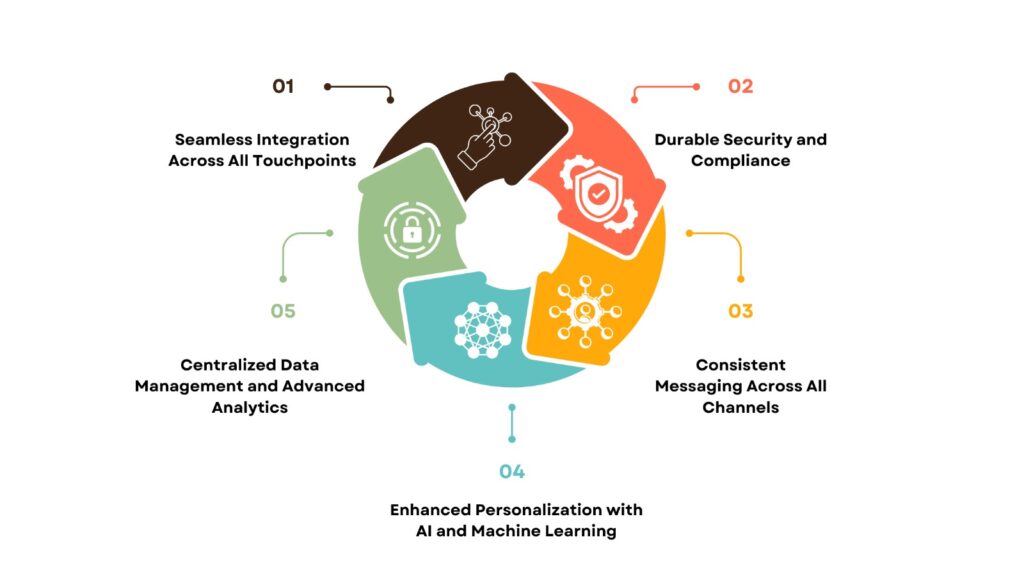
- Seamless Integration Across All Touchpoints: Unified communication tools integrate all channels—SMS, email, social media, chatbots, and more—into a single platform. This ensures that all customer interactions are tracked and managed centrally, providing a consistent experience across all touchpoints. For instance, a retail chain can use a unified platform to synchronize promotions across online stores and physical locations, ensuring customers receive the same offers regardless of where they shop.
- Centralized Data Management and Advanced Analytics: A unified platform centralizes data from all channels, simplifying the analysis of customer behavior and the generation of insights. This enables the creation of targeted marketing campaigns and personalized experiences at scale. For example, a telecom company could use this data to identify customer pain points and proactively address them, enhancing customer satisfaction and retention.
- Enhanced Personalization with AI and Machine Learning: By use customer data from all channels, businesses can deliver personalized messages and offers through AI and machine learning. This technology can predict customer needs and preferences, driving higher conversion rates. A travel agency, for example, could use AI to recommend vacation packages based on a customer’s previous bookings and online activity.
- Consistent Messaging Across All Channels: A unified communication tool ensures consistent brand messaging across all platforms. Whether through social media, email, or SMS, customers receive the same message, reinforcing brand identity and trust. A bank, for example, can maintain consistent messaging across its app, website, and customer service, ensuring that all communication reflects its core values.
- Durable Security and Compliance: Unified platforms often come with built-in security features such as encryption, access controls, and regular security audits. This helps protect customer data and ensures compliance with privacy regulations. For instance, a healthcare provider using a unified platform can secure patient data across all communication channels, ensuring compliance with regulations like HIPAA.
Why Choose PRP Services Pvt Ltd for Your Unified Communication Needs?
PRP Services Pvt Ltd is a trusted partner for businesses seeking a durable unified communication solution. Here’s why you should choose us:
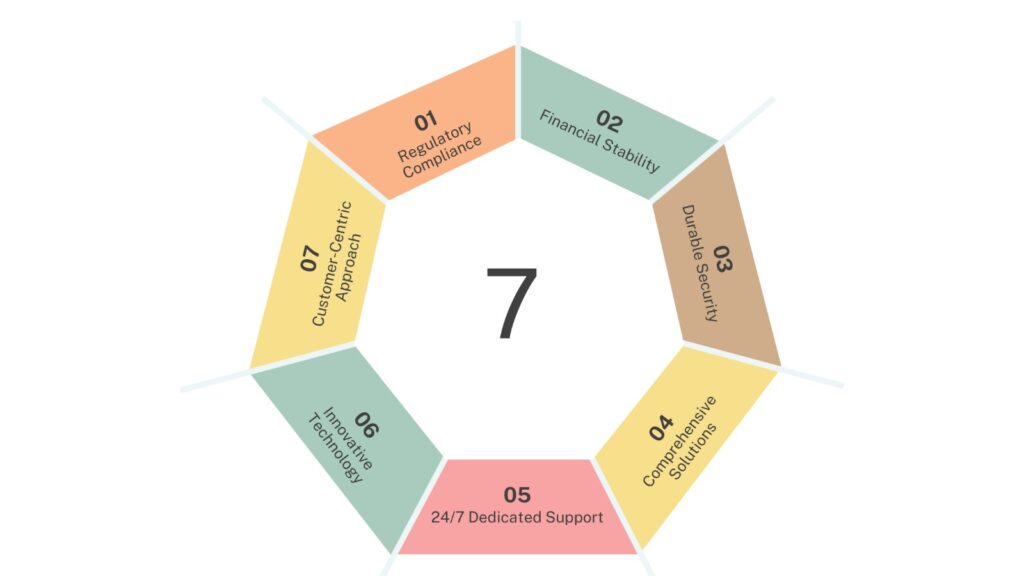
- Regulatory Compliance: As a licensed Telemarketer, our services comply with industry regulations, providing peace of mind that your communications are in safe hands.
- Financial Stability: With over 15 years of profitability and consistent growth, we are a reliable partner for your long-term business needs.
- Durable Security: Our platform is built with advanced security features, including encryption, access controls, and regular security audits, ensuring your data is protected at all times.
- Comprehensive Solutions: From Bulk SMS to Cloud Telephony, WhatsApp Business API, and Chatbots, our unified platform covers all your communication needs, making it easy to manage and optimize your marketing efforts.
- 24/7 Dedicated Support: We offer round-the-clock support to ensure your operations run smoothly, reflecting our commitment to providing consistent, high-quality service.
- Innovative Technology: Our platform integrates the latest technologies, including AI and machine learning, to deliver personalized and efficient communication solutions that meet the evolving demands of your business.
- Customer-Centric Approach: We focus on your unique needs, offering customized solutions that align with your business goals, ensuring you get the most out of our platform.
Frequently Asked Questions (FAQs)
OMNI-channel marketing is a strategy that integrates various communication channels—such as social media, websites, mobile apps, and physical stores—to create a seamless customer experience. It’s important because customers today interact with brands across multiple platforms, and OMNI-channel marketing ensures a consistent and unified journey, enhancing customer satisfaction and loyalty.
Businesses often struggle with channel integration, managing vast amounts of data, maintaining consistent brand messaging, and delivering personalized experiences at scale. Additionally, ensuring security and compliance across all platforms can be challenging.
A unified communication tool centralizes all communication channels, enabling seamless integration, consistent messaging, and advanced data management. It also enhances personalization with AI-driven insights and ensures data security and compliance, helping businesses deliver a superior customer experience.
Effective data management allows businesses to analyze customer behavior across different channels, providing valuable insights that can be used to tailor marketing strategies and improve customer experiences. Without proper data management, businesses may miss opportunities to engage customers effectively.
Businesses should seek a platform that offers seamless integration across channels, advanced analytics, AI-driven personalization, consistent messaging, robust security, and scalability. Additionally, 24/7 support and a focus on compliance are essential for ensuring the platform meets business needs and industry regulations.
Conclusion
OMNI-channel marketing is the future of customer engagement, but it comes with significant challenges. By partnering with PRP Services Pvt Ltd, you can overcome these challenges with a unified communication tool that offers seamless integration, enhanced personalization, robust security, and consistent messaging across all channels. As customer expectations continue to rise, choosing a trusted partner like PRP Services is essential for staying competitive and delivering exceptional customer experiences.

